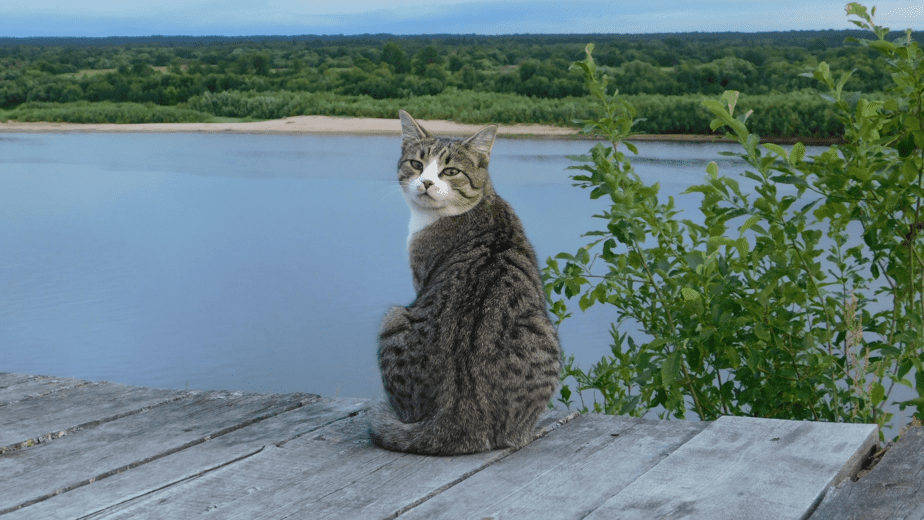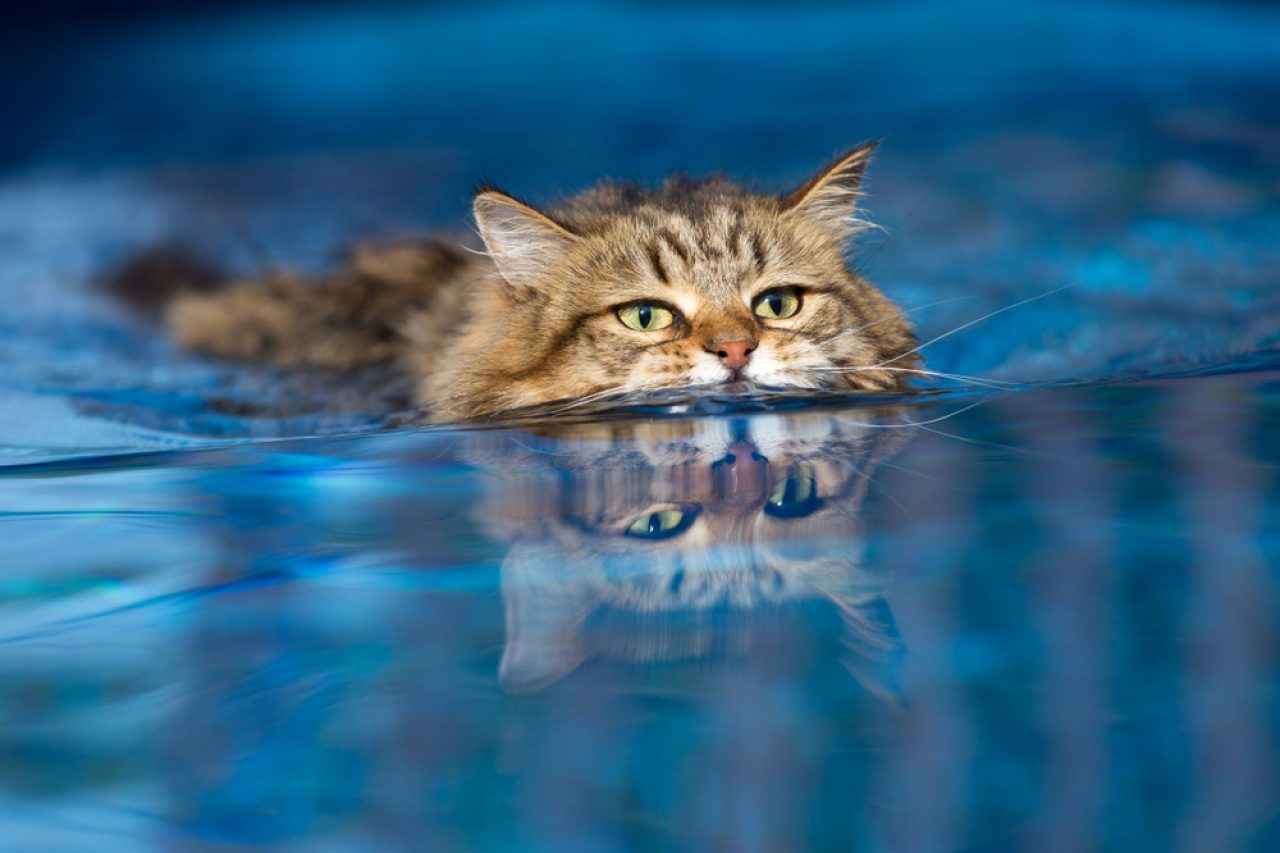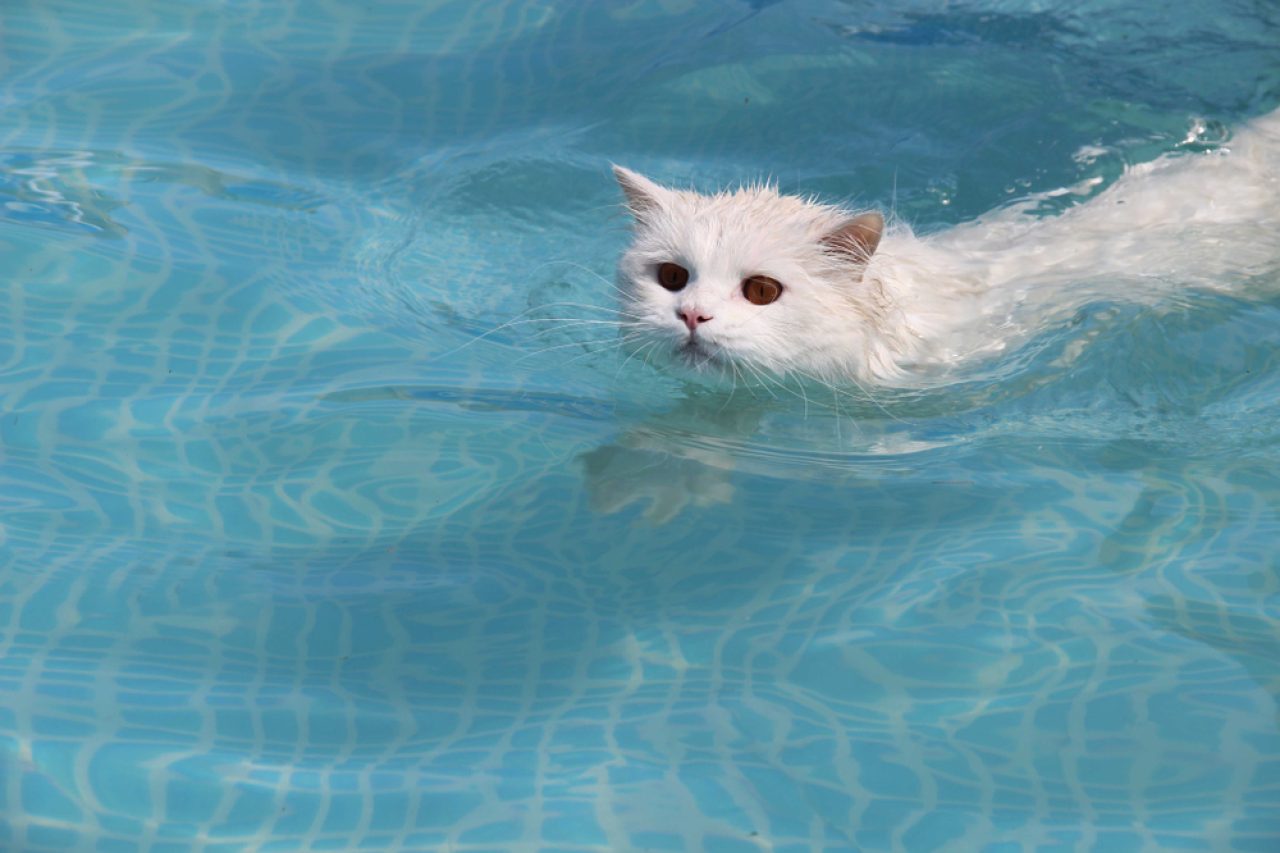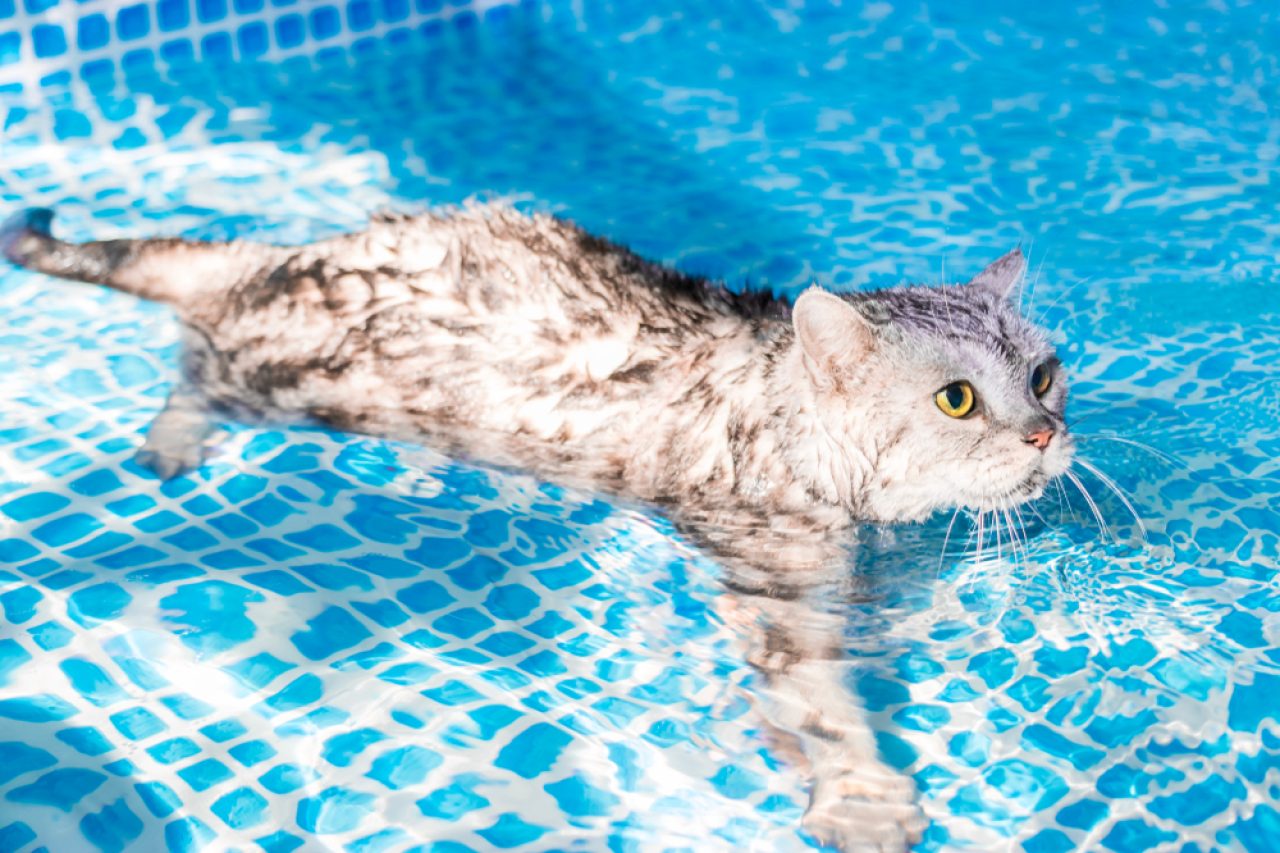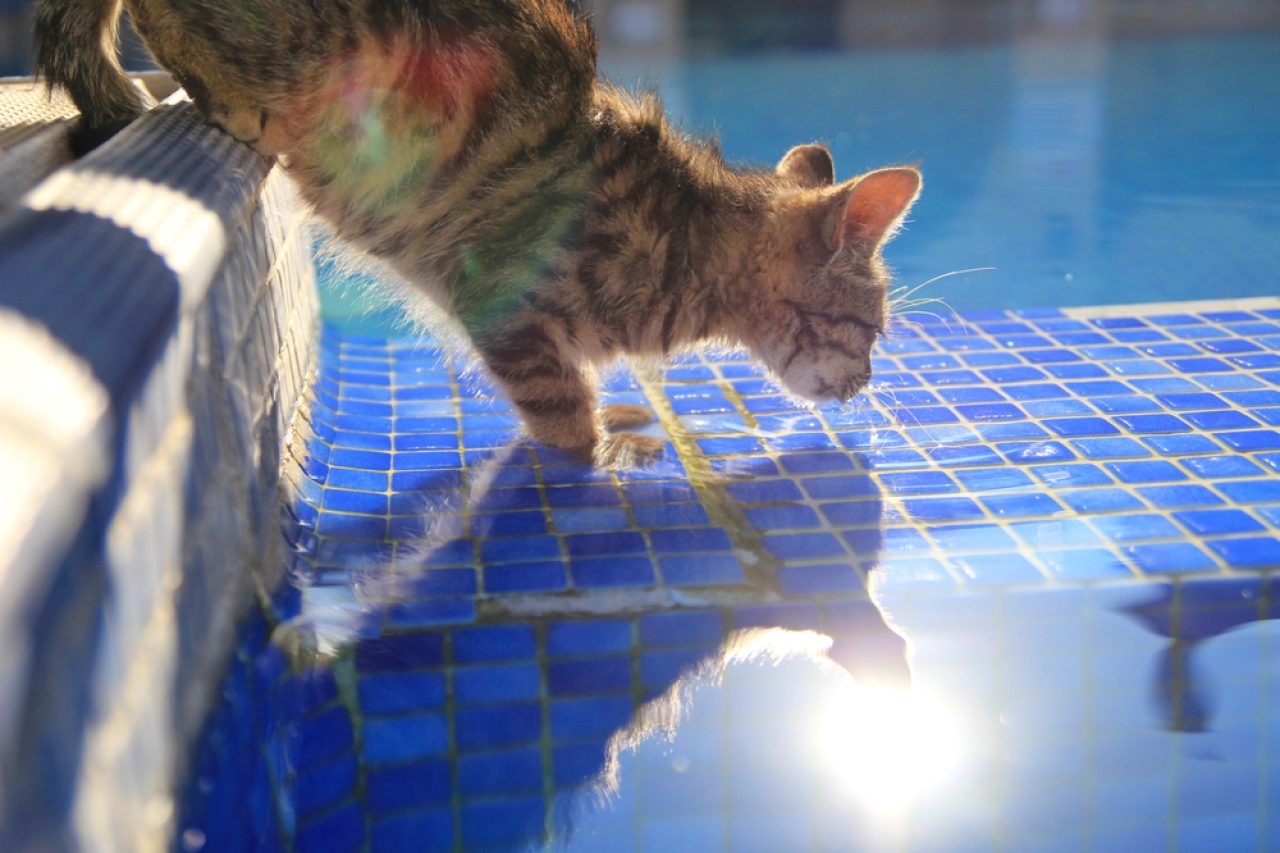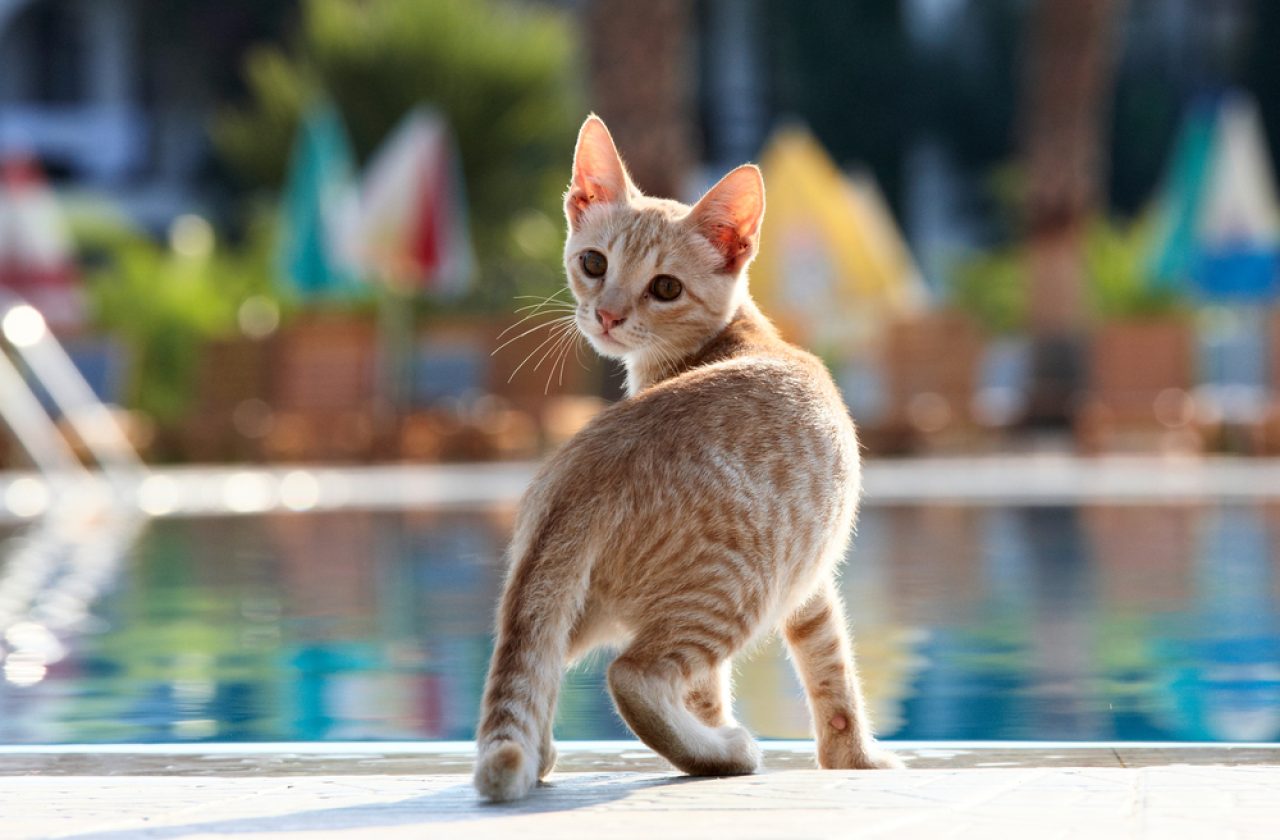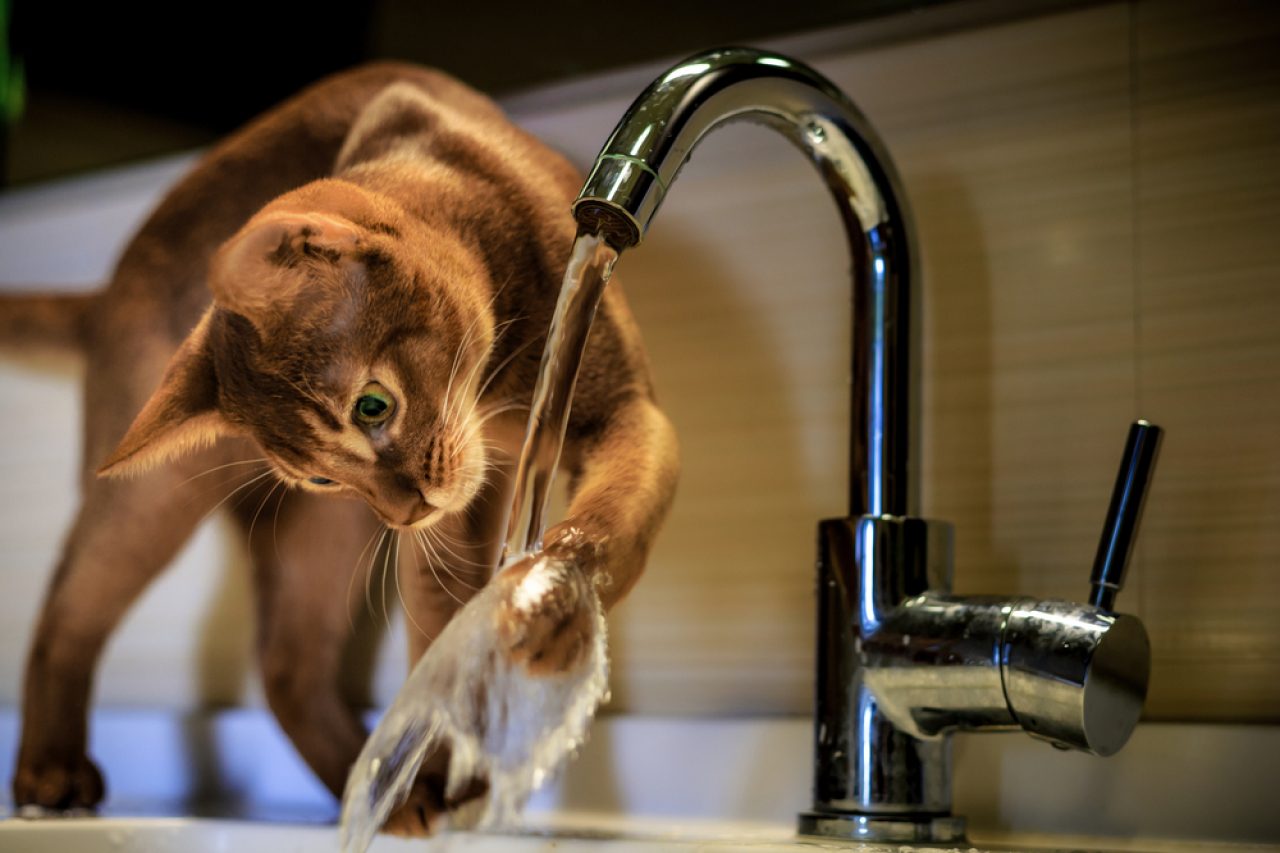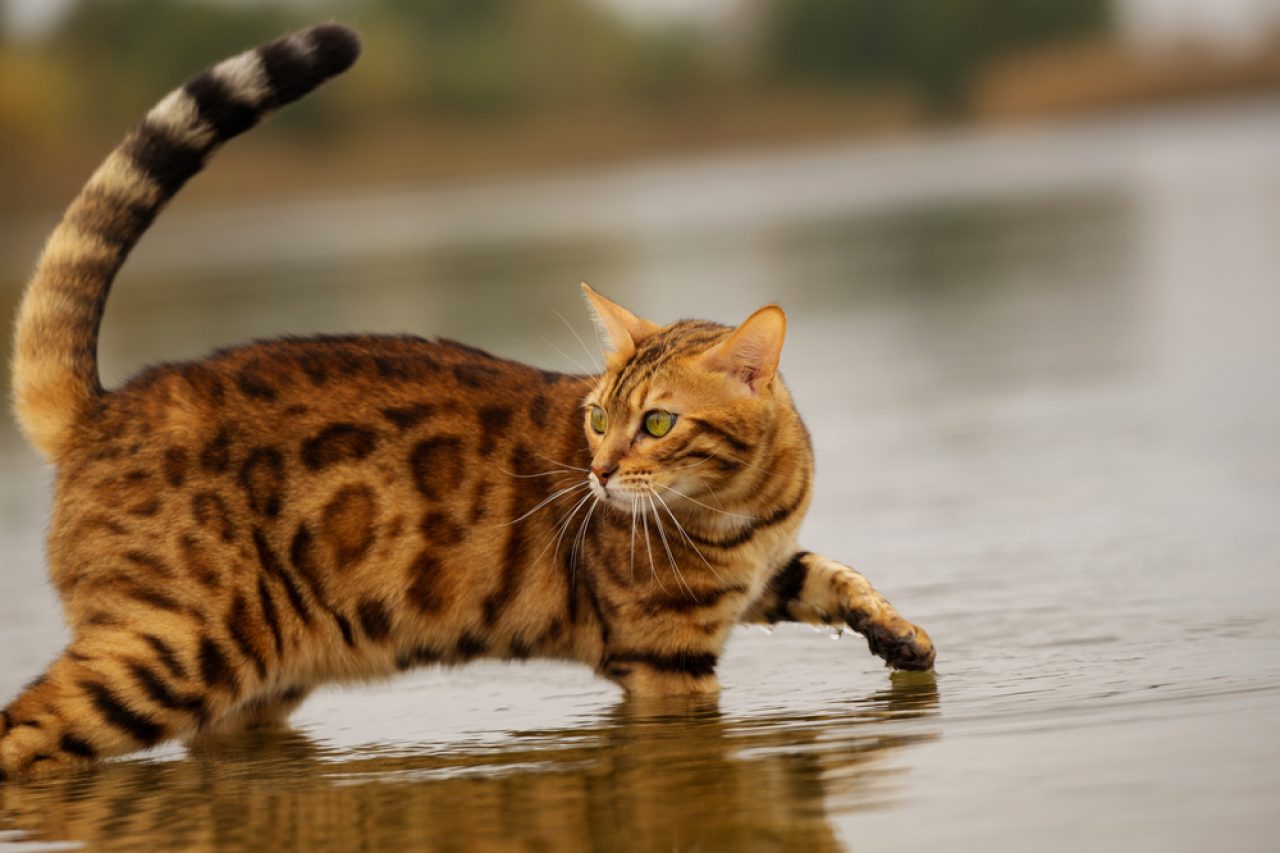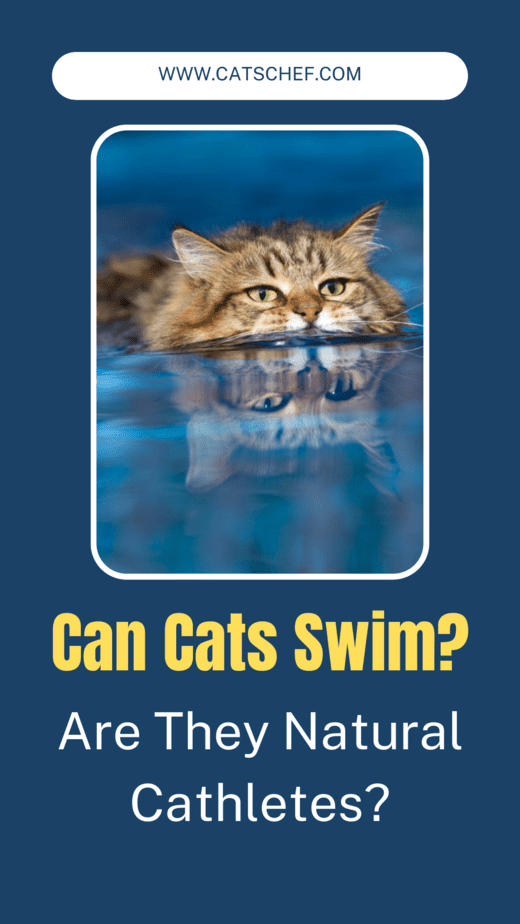📖 Table of Content:
We’ve all heard the saying that felines hate water. But what about swimming? Can cats swim? Are there any cats that enjoy water? And if they were put in a situation where they had to swim, could they do it? Well, it largely depends on the breed.
You’ve probably seen what incredible swimmers tigers are. And since they’re related, that must mean that our furballs can do it as well, right? Why would they avoid water so passionately, then? Why is their relationship so complicated?
What is it that makes some cats hate water while others don’t? And which breeds actually enjoy it? We’ll cover it all, but first, we need to figure out if cats can swim. And if they can, why don’t they do it?
Can cats swim? A sinking relationship
The answer is that yes, cats can swim! They just choose not to most of the time. Before they were our little overlords, cats had to take care of themselves and survive on their own. This included hunting, as well as getting away from predators.
So, it’s no wonder that the ability to swim also played a big role in their survival. Cats can instinctively paddle their feet and swim without any issues. For a short time at least. Even though all cats can swim, not all are very good swimmers.
If their life depended on it, they would manage for a short while. However, in most cases, housecats need to be taught how to swim. Even then, domestic felines aren’t really suited for it. They get tired pretty easily, so drowning is a very big possibility.
Why do some cats hate water?
There are a few main reasons why a cat might hate water. And since they’re pretty general, they include almost all cat breeds. The breeds that do like water are only like that because of human influence and breeding for certain kinds of jobs.
1. Water harms their skin
The biggest reason why cats avoid water is that it’s harmful to their skin. Feline skin has very sensitive pH levels that water can easily disrupt. That’s why cats groom and clean themselves instead of bathing. This doesn’t apply to all cat breeds though.
2. Thick fur takes longer to dry
Comfort is everything to cats, and a long or thick coat getting soaked with water is just as unbearable. It’s very similar to the feeling you get when wearing soaking-wet clothes. Cats hate being wet for longer periods of time, so they avoid getting wet at all.
3. Limited mobility
Once their coats are wet, they become much heavier. This makes it difficult for them to move around, and for a little active predator, this can be a nightmare. Their mobility is everything to them, so they avoid water like the plague.
4. They hate being cold
Once your whole body is soaked, your temperature naturally decreases. And if we look at felines, we can notice just how much they hate being cold. They’ll seek out rays of sunlight to bask in or any warm surface to sleep on. So if they can avoid freezing by staying dry, they’ll definitely do it.
5. It takes far too much energy
Swimming requires an ardent amount of strength and energy. So, it’s no surprise that large wildcats are such incredible swimmers. Although your little furball is an athlete too, swimming might be a bit too much for her. It takes up a lot more energy and strength than laying in the sun.
Things to keep in mind if you have a cat that loves a dip
There are certain breeds that don’t hate water. Some only like to play with it, but some also enjoy an occasional dip. But if you own such a feline and she has access to a body of water, you still need to think of her safety. Here are some things to keep in mind.
1. Bathe her with cat-safe shampoo after pool swimming
When it comes to water-loving felines, the question of “Can cats swim?” turns into “Just how well can cats swim?” Some breeds tend to be stronger swimmers than others. If that’s the case they might enjoy playing around and swimming in the pool.
Pools can, however, be dangerous for cats. And it’s not only because of the possibility of drowning. Pools contain a lot of chemicals that help keep them clean. While that protects humans, it can be very harmful to your furball’s skin.
That’s why you need to bathe her after her swimming sessions. Water in general can be harmful depending on the breed, so be sure to use the proper shampoo. Your veterinarian will be able to recommend which brand is best to use.
2. Keep the pool covered and her time there limited
Though they might enjoy spending time swimming, you can have too much of a good thing. So, don’t let them have free access to the pool all the time. Once they’ve had enough, cover the pool. This will help prevent any possible accidents and help you keep track of when you need to bathe her.
3. Don’t let her drink the pool or ocean water
We’ve all sometimes accidentally ingested a little bit of pool or seawater. It didn’t cause any problems, so we didn’t think too much of it. But drinking a lot of pool water can be very harmful to cats. Felines have very sensitive digestive systems, so be careful so that they don’t end up drinking the water.
4. Keep the chemicals away from them
We’ve already talked about how the different chemicals in the water can harm your furball, and the same applies to cleaning chemicals. In order to prevent any incidents, keep the cleaning supplies somewhere out of reach and preferably locked away.
5. Take precautionary measures before boating trips
Taking your cat along on boat trips drags along a whole new set of possible dangers. So, before you even board the vessel, you’ll need to make sure that your feline will be absolutely safe. This includes getting a life vest, a safety net, and similar things.
There aren’t life vests specifically made for cats, so you’ll need to get one made for dogs. They should work just as well, just make sure that they fit properly and that they’re the right size. As for the safety net, you’ll need one to fish her out if she accidentally falls into the water.
6. Don’t overestimate your cat’s swimming abilities
Even the best feline swimmers are still much worse than dogs. They get tired very quickly in the water, so you should never take your eyes off them. Just a split second of not paying attention could easily lead to your cat drowning or getting injured.
How to make a cat feel comfortable around water
If you don’t own a water-loving breed but you still hope to enjoy field trips to the beach or lake, you can. They may not grow to like water, but at the very least, they won’t be afraid of it anymore. And the only way to achieve this is through positive encouragement.
Give her a lot of treats and praise when she’s close to water. Try to lure her in, but never push her out of her comfort zone. Forcing her to do something will only make her associate water with a negative experience. Respect your cat’s boundaries before anything else.
Cat breeds that love water
If you’re an active person that loves boat rides and visiting lakes and the coast, you might want a similar feline. Luckily for you, there are a bunch of cat breeds that are both very active and love water. They would make the perfect companions.
1. The Norwegian Forest cat
What better cat to take along on water-related adventures than the feline that Vikings had on their ships? These furballs are more than used to all the conditions of the sea. They’re familiar with water, so they have no reason to fear it.
2. The Bengal cat
These are one of the most active cat breeds out there. They love any sort of activity, and they absolutely despise boredom. The Bengal would be more than happy to accompany you. They also love playing with water, so you needn’t worry about that.
3. The Turkish Van
Turkish folklore says that this breed was one of the many animals aboard Noah’s Ark. So, if we take that into consideration, they already have experience sailing. But folklore aside, these cats really do love water and would make excellent companions.
4. The Abyssinian
Abyssinians are a very lively and playful breed. They rarely fear anything, and they display a child-like curiosity, which applies to water as well. They love exploring and staying active, so they’d fit pretty well in all your trips.
5. The Sphynx
These unique beauties are recognizable thanks to their lack of fur. Because they don’t have hair to protect their skin, they require regular baths to stay healthy. So, what better breed to bring along than one that’s already used to water?
6. Maine Coon
These gorgeous felines have an obsession with water. They’re fascinated with it, so if you leave your tap open, they’re sure to come and play. This innate lack of fear towards it makes them ideal for trips that include bodies of water.
7. The Manx cat
These cats originated from the Isle of Man in the Irish Sea, so it’s no wonder that they love water. They will actively seek it out, just to mess around and play in it. With a personality like that, who wouldn’t want them by their side?!
8. The Turkish Angora
Another Turkish cat breed with a thing for water. Unlike the Turkish Van, these felines might not enjoy getting entirely soaked. But, they still love water and playing with it. They have a fascination with water bowls and glasses, as well as taps.
9. The Japanese Bobtail
These felines are one of the most playful cats you’ll ever come across. They love jumping around and staying active, as well as trying out new things. And this includes water. They might not want to get entirely soaked, but they adore playing with running water sources.
10. The Egyptian Mau
This ancient breed has no fear of water whatsoever. They were bred to be duck hunters, so getting wet is nothing new to them. They’re fascinated by water and love playing with it. So, there’s no doubt they’ll be a great addition to your field trips.
Final thoughts
So, can cats swim? Absolutely! Are they good swimmers? Not so much. Swimming is just an ability felines developed to survive, but it’s not one of their stronger traits. They tend to tire out fairly easily which can lead to accidents and even drowning.
Generally speaking, cats aren’t made to be around water unless completely necessary for their survival. That’s largely due to the way their skin is built and the way it reacts to water. To avoid getting wet as much as they can, felines evolved the ability to groom themselves. (Although occasional baths are okay.)
That way they can stay clean without the need to use water. But, if you really want a cat who can accompany you on trips that include water, there’s still hope. There are a lot of breeds that are not only used to getting wet but love it! We hope you’ll be able to find the right one for you.
Read more: These Guys Went Fishing And Ended Up Catching Abandoned Kitties
